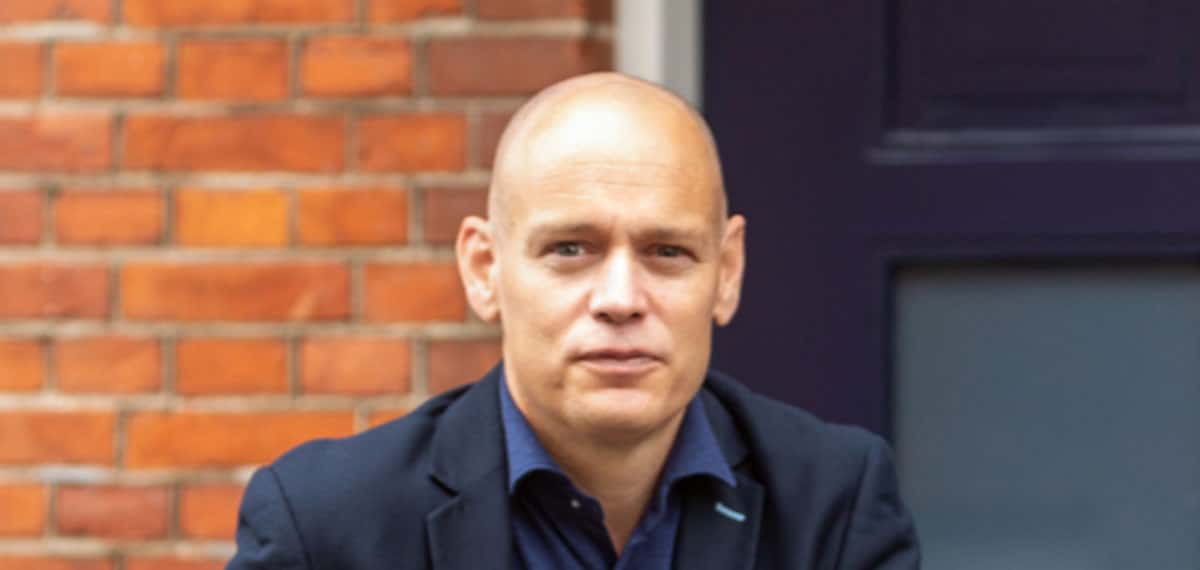Navigating Customer Due Diligence in Your Home Purchase Journey
Buying a home is a thrilling step, and as you explore the Dutch real estate scene, understanding why identity verification matters is crucial. Let's dive into this in a friendly and accessible way, tailored to your quest for a new home.
We've enlisted the expertise of Merel Drechsel , general manager at Handelzeker, to explain the law in simple terms. Handelszeker, a leading company in the Netherlands, assists professionals, including real estate agents, in risk and compliance investigations, as well as ID verifications.
As you set your sights on your dream home, know that real estate transactions, especially those with substantial sums, are closely monitored under the Dutch Wet ter voorkoming van witwassen en financieren van terrorisme (WWFT). Real estate agents follow robust Customer Due Diligence (CDD) procedures to ensure a secure process.
Why Your Identity Matters:
- Keeping Money Clean: Identity verification helps agents prevent money laundering activities, ensuring your home purchase funds are clean and legal.
- Preventing Financing of Terrorism: Confirming your identity in the real estate process contributes to stopping funds from falling into the wrong hands for potential terrorist activities.
- Ensuring Legal Compliance and Reputation: Following legal frameworks safeguards agents and maintains the industry's reputation, assuring a smooth and trustworthy home buying experience.
The Key Role of Identity Verification
In this adventure, a pivotal part of CDD is confirming your identity. Your real estate agent will request and verify your ID, typically a passport. Your agent may also ask to make a copy of your passport. However, it's important to note that, according to Dutch law, it is not mandatory to keep that copy.
The agent can simply note down all the necessary info. According to Dutch law (WWFT), specific details like the Citizen Service Number (BSN), passport photo, and MRZ code71 are not obligatory.
A Word on Document Exchange Between Agents
Sharing personal documents among real estate agents is strongly discouraged. Why? Channels like email and WhatsApp, often used for document exchange, can be vulnerable to data breaches. In alignment with both GDPR and WWFT, Handelzeker suggests avoiding the exchange of identification document copies.
Also, if you buy a home, the deal is formalized in a purchase and sales agreement. This agreement starts with all the personal data of you and the seller. The seller's agent can use this data to conduct an investigation on you.
Securing Transactions Without Document Exchange
Instead of sharing sensitive documents, your agent can provide necessary personal information to fulfil client investigation requirements. This ensures compliance without compromising your confidential details in case of a security breach.
Understanding Payment Methods
Wondering who needs to know how you'll pay for your new home? Your agent has an obligation to ask about the source of your funds to ensure transparency and legality.
You are not required to disclose every financial detail to everyone. Although the seller's agent may ask about your funds, you don't need to submit documents or sign papers. The notary will carry out a comprehensive investigation throughout the process, guaranteeing a secure and seamless path to homeownership. The buying agent only needs to relay the information you shared when queried by the seller's agent.
If any warning signs or suspicious activities are identified, the transaction must be reported to the Financial Intelligence Unit (FIU).
In Conclusion
As you set out to purchase your new home, remember that the Dutch WWFT is more than regulations – it's a commitment to your safety and the integrity of the real estate market. Real estate agents, by verifying your identity, actively contribute to creating a secure and trustworthy environment for your exciting home buying adventure. It's a collaborative effort for a successful and fulfilling experience in finding your dream home.
The WWFT has different verifying methods for individuals with other professions, such as a Politically Exposed Person (PEP). Explaining these methods if you have a different profession or if you come from a sanctioned country goes beyond the scope of this article.
For more information, you can contact Merel; she can precisely guide you on what is required and what is not.
Insights from a rising star in real estate, Maud Osinga!
Introducing Maud Osinga, a rising star in the world of real estate and a junior agent at Lauteslager Makelaars Utrecht. As part of one of the largest offices in Utrecht, Lauteslager boasts a team of experts, each bringing their unique expertise to the table.
We are pleased that Maud has given us some insights into the Utrecht real estate market. Our conversation was so packed with valuable information that we've distilled it into 2 informative articles. Stay tuned as Maud shares her expertise, guiding you through the nuances of buying a home, and making your journey to homeownership smoother and more informed. Prepare for Part 1!
Who is Maud?
I am a graduated Assistant agent, a.k.a. Makelaar! As an Assistant Real Estate Agent, my responsibilities are diverse and very exciting. I assist our clients in one of the most significant decisions of their lives – buying or selling their homes. Whether it's conducting property research, coordinating viewings, or handling paperwork, every day presents new challenges and opportunities for me to learn and grow.
What is the customer journey like when buying a house in the Netherlands?
It all starts with a budget, so you must know your numbers. At the beginning of your house-hunting journey, it is advisable to consult with a good mortgage advisor so you have a realistic picture of what is possible within your budget. If all is clear, we can get to the first step:
- Defining your housing needs: You must have a realistic picture of what is possible within your budget in different districts or villages.
- Making appointments: When you find a property that meets your criteria, you can contact the selling office to schedule a viewing appointment. Go and see what is on market!
- Giving purchase advice (optional): If you find a house that captures your interest, a purchase agent like myself will offer buying advice. This advice assesses the structural condition of the house, provides an estimate of its real value based on nearby sales transactions, and considers environmental factors that may impact its (future) value.
- Putting in an offer: Working with a purchase agent, you'll determine the opening proposal amount and any conditions. Common reservations include financing, further technical inspections, potential soil contamination, research on the property's destination and surroundings, and any obligations to the municipality. Additionally, a proposed transfer date will be suggested.
- Taking care of the administrative processing: Once your offer has been accepted, the verbal agreements are documented in the purchase agreement, and the various attached legal documents are thoroughly examined. A purchase agent will ensure that you have all necessary documents, and they are checked properly. If everything is handled well, you will sign the purchase agreement.
- Taking care of a final inspection and going to the notary: The final ownership transfer occurs at the notary's office. Before the notary appointment, a final inspection of the property is conducted to confirm its condition. If everything is satisfactory, you can sign with confidence. If there are discrepancies, they will be addressed before finalizing the transaction.
- If the keys are handed over, you are the owner of the home, congratulations! Now it is time to relax and enjoy your new home!
What is the benefit of hiring a good real estate agent when buying a house in Utrecht?
Well, first: Expertise and Experience! A purchase agent possesses extensive knowledge of the real estate market, local prices, and trends. Their experience enables them to make realistic assessments and guide you in making well-informed decisions. Second: Negotiation Skills! A purchase agent is very important when starting a negotiation. They can get the best possible price on your behalf and secure favourable terms, potentially saving you money. Also, with Access to Exclusive Information pre-market, we can save you time, we are objective, we know the local market and we have a huge network of professionals around us. Last but not least: Legal Protection! A purchase agent understands the legal aspects of real estate transactions. They can advise you on contracts, clauses, and other legal matters, providing better protection.
What is the bidding process like?
The process of selling a house typically involves setting an initial asking price, listing the property, receiving offers from interested buyers, and engaging in negotiations. The negotiation phase may include counteroffers until both parties agree on the terms of the sale. Upon acceptance of an offer, due diligence and inspections may occur, potentially leading to further negotiations. The sale is finalized through the completion of paperwork, and the closing involves the legal transfer of ownership and the exchange of funds. Specifics can vary, and the assistance of a real estate professional is often valuable in navigating the process.
I need a mortgage so I need a valuation - can you explain in simple terms what a valuation is and why do I need one?
A bank requests a valuation report as part of the mortgage approval process. This report provides the bank with independent information on the current market value of the real estate serving as collateral. It enables the bank to assess collateral risk, determine the loan amount, comply with regulatory requirements, and ensure protection for both the borrower and the bank. In summary, the valuation report is an essential tool for risk management and property valuation in real estate financing.
Can every company evaluate my house?
No. A valuation report can be conducted by certified valuators affiliated with a recognized appraisal institute, such as the NWWI (Dutch Property Value Institute). These valuators have the necessary training and certification to provide an accurate estimate of a property's value following prevailing standards. Additionally, in some cases, desktop appraisals are utilized. A desktop appraisal involves assessing the property's value based on available data and information, without the appraiser physically visiting the location. This method is often employed for relatively straightforward appraisals or refinancing purposes.
In the case of the NWWI, this institute ensures the validation and verification of appraisal reports to guarantee quality and objectivity. It's important to emphasize that conducting an appraisal is a specialized task that should be carried out by qualified professionals.
Is it mandatory to evaluate my house? Why/why not?
Property evaluation or appraisal is not mandatory in all situations, but it is commonly required or recommended under specific circumstances. These include obtaining a mortgage for home purchase, determining an asking price when selling or buying a home, refinancing a mortgage, estate planning, insurance purposes, and property tax assessments by local authorities.
What are the consequences if the valuation does not meet the purchase price?
If a discrepancy does occur, for instance, if the appraisal is lower than the purchase amount, it may be necessary to compensate for the difference with personal funds. In that case, you may need to inject additional financial resources on top of the mortgage financing to complete the transaction.
Would you like to include anything else?
Yes, very much ;) At Lauteslager Makelaars, it's not just about homes, it's about the connection! Our real estate agents are known for their professionalism with a touch of warmth. A good relationship with your real estate agent is crucial because, let's face it, choosing a home is not an everyday affair.
Ready to delve deeper into the world of home buying with Maud Osinga? If you're eager to connect or seek further guidance, a single phone call is all it takes to schedule a meeting with Maud. Stay tuned for our next instalment next week, where we'll unveil even more invaluable tips and tricks to empower your home-buying journey.
Bank Clerk's Journey to Mortgage Expert: Transforming Lives through Financial Coaching
Welcome to the inspiring world of Monique Hypotheekadvies, where finance meets transformation! Meet Monique Kamphorst, a visionary in the realm of mortgage advisory services. Beyond her impressive professional expertise, Monique's charm and warmth make her a standout personality in the industry. Her journey, from a Bank Clerk to a distinguished Finance Expert, reflects a commitment to excellence and a passion for empowering others. In an exciting development, she has recently expanded her company's horizons by introducing new loan options for businesses in collaboration with 2 other companies.
Join us in this article to learn about Monique's amazing story. We'll take a closer look at the important moments that shaped her career and how she's making a big difference in the lives of individuals and families.
Could you share a bit about yourself and what led you into the world of finance, particularly your journey in mortgage advice and financial coaching?
I'm a multitasking mom, sister, daughter, and entrepreneur, intrigued by people. Cooking, eating, and the occasional sport keep me going.
My journey in finance began in '83 as a bank clerk. Climbing from the first female bank manager to a private wealth manager, I've spent 12 years self-employed in mortgage advice and financial coaching. Mortgages to me are about life and emotion—where living meets finance. Crafting advice that truly fits my client's needs, considering everything from their mortgage to future scenarios like disability or retirement, is my passion. It's not just about interest rates; it's about securing your life. Every time I give sound advice or number-crunch with a client, it's a genuine thrill. It's where my creativity thrives, piecing together the best deals.
Additionally, how has your transition from 't Gooi to Amsterdam shaped your approach to serving clients in the financial realm?
Shifting from 't Gooi to Amsterdam in 2017 brought a change in clientele—now mostly young compared to me! Yet, the shift brings excitement, especially working with expats and navigating unique issues like ground lease, prevalent in this vibrant city. Amsterdam's been a great move, adding a new dimension to my work!
Let's dive into it! What's the process for calculating the maximum mortgage in the Netherlands, particularly for expatriates?
The calculation of mortgages remains consistent for both expatriates and native-born individuals in the Netherlands. The maximum mortgage primarily hinges on income, and existing debts, and additionally considers interest rate maturity, the property's energy label, and its value. This calculation has grown intricate, surpassing the scope of online tools. However, for expatriates, certain lenders may incorporate the 30% ruling as an added benefit, potentially resulting in a slightly higher maximum mortgage.
Are expatriates generally eligible for mortgages in the Netherlands, and are there specific criteria they need to meet?
Yes. Importantly, in basic terms, one must live and work in the Netherlands.
Do applicants need a stable job to secure a mortgage, especially expatriates or newcomers?
If you have a temporary job and your employer gives you a letter saying they intend to keep you, that income can be used for calculations.
Is there a pre-approval process for mortgages in the Netherlands before starting the house-hunting process?
No, the lender makes the final decision. They have all the documents needed to decide. To make a secure offer, a financial adviser and a real estate agent must work together early on. This helps assess everything and avoid risks before making an offer.
How is the borrowing capacity determined for a mortgage, particularly for expatriates or those with unique employment situations?
The calculation is usually the same for everyone. But if there are special situations that don't fit the usual way, as a financial adviser, I can check if a lender might make exceptions. It's personalised and there's no standard answer due to various factors. If you think this might apply to you, let's talk in an initial free meeting. I can give you a good idea of what to expect.
What documents are typically needed when applying for a mortgage in the Netherlands?
Normally, you'll need a copy of your passport, residence permit, employer's statement, salary slip, and bank statements. Also, you'll require a purchase contract and property valuation report. For business income, the lender might need the company's yearly accounts and the entrepreneur's tax returns from the last 3 years.The lender can ask for more papers if things aren't clear. I suggest gathering as many documents as you can early on to speed up the mortgage process. I'll assist in collecting them too.
Can you explain what the 30% ruling is and how it affects expatriates or highly skilled migrants in the Netherlands?
The 30% rule applies to non-Dutch employees working temporarily in the Netherlands. If they meet its conditions, they won't be taxed on up to 30% of their wages. This method allows the government to reimburse them for the additional expenses they face to work in the Netherlands.
Have any recent changes in the 30% ruling impacted individuals benefiting from this tax advantage?
Foreign employees are exempt from taxes on up to 30% of their earnings, provided they meet certain criteria. Starting from January 1, 2019, this 30% rule is limited to 5 years. Nevertheless, a transitional arrangement was in place until 2021.
The 30% rule for employees with specific expertise recruited from abroad will be further scaled down from 1 January 2024 if the Senate also agrees to the bill.
If I want to rent out my home, does that impact my mortgage contract, and are there specific considerations or exemptions?
It's important to ask the lender first. Mortgages differ based on whether it's for a rental property or your home, with different rules and rates.
If I want to buy a second home, can I utilise the same mortgage and increase the amount, or are there different terms for multiple properties under one mortgage?
When you move homes and live in a new place, you can usually transfer the interest terms from the old house. The old house will typically need refinancing, often becoming a rental mortgage because you can only live in one house at a time.
Can I use my existing mortgage to purchase a home for my children?
If your home holds significant additional value and your lender permits, you can increase your mortgage. Contact a financial adviser to assess if this aligns with your best interests. Naturally, your income should comfortably cover the expanded mortgage amount.
In the event of a divorce, how does this affect the existing mortgage?
Divorce doesn't make anyone wealthier; it means supporting two households instead of one. It's important to see if one person can handle the mortgage and buy out the other if the house has extra value. Get help from a financial adviser early on for this. Working with a divorce mediator and financial adviser can be really helpful in this situation.
Are there any specific insurance policies required by the mortgage lender, and what types of insurance might be necessary?
The majority of lenders don't mandate disability or death insurance. However, insuring the home is crucial because it serves as security for the lender.
Could you detail the range of services you offer as a mortgage advisor? What specific assistance or guidance can clients expect throughout the mortgage process when working with you?
I offer a free first meeting to discuss your mortgage. If you choose to work with me, I'll guide you through the entire process until you own your new home.
You'll only deal with me, and I'm available whenever you need me, even on weekends or evenings. I'll help with paperwork, find the best deals, and ensure everything is in place. My fee is €2,250 for your first property and €2,595 for subsequent ones. Afterwards, I'll check in with you yearly to make sure everything's going smoothly, at no extra cost.
For those eager to explore personalized financial solutions or discuss their homeownership goals, Monique welcomes appointments. To schedule an appointment, reach out to Monique at info@moniquehypotheekadvies.nl
The Key to Insurance Success
Meet Sander Schreve, a senior insurance agent dedicated to assisting expats, whose journey began in 1999 with the esteemed insurer, Nationale Nederlanden. Over the years, Sander has accumulated a wealth of knowledge and unwavering commitment to safeguarding what matters most to his clients.
Sander offers insights into the mandatory insurance landscape in the Netherlands. We've asked him about the required insurances and the key to insurance succes in the Netherlands. Here's what he has to say:
Mandatory Insurance in the Netherlands:
- Health Insurance in the Netherlands is an essential requirement for everyone. It ensures that you have access to high-quality healthcare services when you need them the most. The best part is that you have the freedom to choose from a range of providers, allowing you to customize a plan that suits your individual needs.
It's important to note that you have the option to switch insurance companies every year on January 1st. However, please keep in mind that switching may require a health declaration. To make the right decision, it's crucial to do thorough research and select a policy that aligns with your specific healthcare requirements.
We also have some great news for our English-speaking clients! We have a special arrangement with health insurer ONVZ, which offers an additional discount. ONVZ is one of the top Dutch health insurers, providing excellent coverage and peace of mind.So, when it comes to health insurance in the Netherlands, make sure to choose wisely and secure the best coverage for yourself and your loved ones. Stay healthy and protected! - Liability Insurance for Cars:
If you own a car in the Netherlands, it is a legal requirement to have liability insurance, also known as "WA-verzekering."This insurance policy covers any damage you may cause to others in an accident, promoting responsible driving on Dutch roads.
It's important to note that there are significant premium variations among insurers. However, we can provide you with options from multiple insurers, guaranteeing you a competitive premium. So, drive safely and confidently knowing that you're protected! - Home Insurance (Opstalverzekering):
Owning a home in the Netherlands often requires having home insurance, a mandate set by banks if you need a mortgage. This insurance provides peace of mind and safeguards your investment.
To secure the most suitable coverage for your circumstances, seek professional guidance. While these are mandatory insurances, there are additional options available to cover your health, wealth, and assets. Policies we often advise people to consider include personal liability insurance, life insurance, travel insurances and legal assistance insurance.
In my daily practice, I encounter numerous individuals unaware of their insurance coverage and their payments. This is often due to the fact that they have policies with multiple different companies.
However, having everything in one place is much more organised and cost-effective due to package discounts!
I can streamline the process and am here to assist you in managing your insurance policies and consolidating them into one place. Moreover, if any damages occur, I will handle all the associated complications. While insurance might not cover everything, I can certainly guide you in the right direction. Just reach out via our website or by phone!
Navigating insurance in the Netherlands is essential. With Sander's expertise, you can protect your life and comply with the law. His experience and friendly approach make him your ideal insurance guide. Sander's website, hoogenraadvanloon.com, is a testament to his commitment to serving expats. It's a user-friendly platform where clients can explore a wide range of insurance options and connect with Sander directly. The website not only offers valuable information but also reflects his passion for ensuring that expats have the insurance coverage they need in their adopted home. Explore hoogenraadvanloon.com to begin your insurance journey with Sander today.
Elevate Your Home Buying Journey by Gaining Insightful Answers to Your Questions!
In this interview, we sit down with Monique Burgemeester the founder of How To Buy A House BV to discuss the exciting changes happening with her events. Monique shares insights into why she decided to make the gatherings more personal and the benefits it brings to our attendees. Unlocking the Future of Home Buying is the title to a new series of tailored events for serious home buyers.
Can you tell us about the event and the significant change you've made in its format from a large and busy gathering to a smaller, more personal setting?
Monique -> Absolutely! The event, "Elevate Your Home Buying Journey," is a special initiative close to my heart. We've transformed the home buyers event from its previous large-scale format into an intimate gathering for several reasons.
Could you elaborate on those reasons?
Monique -> Certainly. We've always valued the quality of interactions over quantity. In a large and busy event, it's challenging for attendees to have meaningful conversations with our experts. By limiting the number of participants to just 25, we can create a much more personalized and engaging atmosphere. We believe that the setting at Midtown Grill perfectly complements our commitment to quality interactions. Picture this: You have the chance to indulge in a delightful meal and engage in relaxed conversations with the relevant experts. It not only saves you time but also provides a comfortable way to gather information about perhaps the most costly purchase in your lifetime. By the end of the event, you'll be equipped with all the knowledge you need. How wonderful is that!
That sounds like a great change. How does this shift benefit attendees?
Monique -> It benefits our attendees in several ways. First, it allows them to have direct access to our 5 senior experts. In a smaller setting, they can ask specific questions related to their unique circumstances. Second, it fosters a sense of community and networking among attendees. Lastly, it ensures that everyone's questions and concerns take centre stage, guaranteeing a more enriching experience.
What motivated you to make this change?
Monique -> Well, the last significant event took place in February 2020, just before the initial lockdown, and it was so hectic that we hardly had the time to ensure everyone received equal attention. We were determined not to repeat this experience.
Additionally, over the years, we've witnessed an increasing demand for personalised guidance in the home-buying process. Buying a home is a substantial decision, and individuals seek tailored advice. In response to this demand, we aimed to craft an event that genuinely places the spotlight on each attendee. Our guiding principle has always been quality over quantity.
That's a thoughtful approach. Can you share any feedback or reactions you've received about this change?
Monique ->We've just wrapped up our inaugural event, and it's safe to say that we've hit the mark! Our attendees highly value the presence of our esteemed experts and are absolutely thrilled to access information tailored to their specific needs. As the evening unfolds, they have the opportunity to engage in even more personalized conversations. It's becoming increasingly evident that this is precisely what people have been seeking but unable to find online—a considerate and thoughtful approach to information sharing.
One noteworthy change is our introduction of an attendance fee. In the past, our events were free, but this model was no longer sustainable. By implementing this fee, we aim to ensure the quality and sustainability of our offerings. It allows us to allocate resources efficiently, ensuring that even if someone can't make it, we can still compensate our contributors, such as the chef.
It sounds like a fantastic transformation. What do you hope attendees will take away from this event?
Monique -> Our primary goal is to empower attendees with the knowledge and confidence they need to make informed decisions about their home purchase. We want them to leave with a sense of clarity and connection. Whether it's finding the right property, understanding mortgage options, or navigating legalities, we aim to equip them with the tools they need for a successful home-buying journey.
That's a noble objective, Monique. Thank you for sharing your insights and the motivation behind this transformation. We wish you all the best with the event.
Monique -> Thank you, it's been a pleasure discussing this with you. With these new events, we are expanding our commitment to your satisfaction, ensuring that you leave with all the knowledge you need to make informed decisions. We look forward to welcoming you to these upcoming events in 2024 at Marriott Hotel Amsterdam, Midtown Grill!
If you need more information, make sure to shoot a message to monique@howtobuya.house
Interview | How ABN's Jocelyn can help you find the right mortgage
Expat-friendly mortgage advice for Netherlands homeownership
Are you planning to move to the Netherlands or have you just arrived? Let’s talk about what you need to do to settle in comfortably.
First things first, finding a place to live is crucial. You’ll have to decide whether you want to buy a home or rent for a while. If you’re interested in buying, the first step is to figure out how much money you can borrow. ABN AMRO has lots of experience helping expats like you buy homes, so they’re a great choice to guide you.
Let me introduce you to Jocelyn, a senior mortgage advisor at ABN AMRO BANK!
Tell us a bit about yourself and your work
Hi, I’m Jocelyn, a mortgage advisor at ABN AMRO. My job is to help people from different countries buy homes in the Netherlands. I started by working with expats, helping them with things like banking, loans, and insurance. Later, I decided to specialize in mortgages to give even better help to our clients. Now, I’m part of ABN AMRO, which has been doing this for more than 25 years.
Who are your clients?
I work with expats, people from the Netherlands who are working abroad, and others who are somewhere in between. Many people who come to the Netherlands are new and need support to settle in well. That’s who we focus on.
What do you do, and how do you work with others?
We handle everything for your mortgage, from the beginning to the end. Our goal is to help you afford the home you want. We also help you find the right people to work with and guide you through all the paperwork and steps to buy a home. Our aim is to make it easy for you to move into your new place.
Any tips for expats to make moving to the Netherlands smoother?
Sure, here are three tips:
- Join an Expat Group: You can talk to others who have moved to the Netherlands and learn from their experiences about buying a home and more.
- Get Used to Transport: Bicycles and public transport are big here. It’s good to get familiar with them.
- Be Ready for Weather: Netherlands weather can change quickly. It’s a good idea to have an umbrella handy.
What should expats do or avoid when dealing with your field?
Let’s talk about what’s good to do and what to avoid:
Do’s:
- Start with a Mortgage Advisor: Talking to an advisor can help you understand everything and make your home-buying journey smoother.
- Visit Houses: It’s a good idea to check out different houses to understand how things work.
Don’ts:
- Don’t Go Alone: It’s a good idea to get advice from someone who knows about Dutch mortgages. They’re different from what you might be used to.
- Don’t Rush Buying: Take your time finding a home that suits you. It’s an important decision.
Why should someone choose you over others?
ABN AMRO has everything you need to settle in the Netherlands. We offer lots of financial products, and our advisors have helped lots of people like you. Plus, we can help you with things like insurance, payments, and even car loans.
How can people get in touch with you?
You can email me at jocelyn.muller@nl.abnamro.com or visit our website to set up a meeting, even if you’re not an ABN AMRO customer yet.
Jocelyn is one of our experts in the next How To Buy A House Event in Amsterdam. You can purchase your tickets to this informative event HERE
Places are limited!
This is just the beginning of your journey! See you Soon!
Interview | Anja Kroon, Interior Designer
Today, we have the pleasure of sitting down with the immensely talented Anja Kroon, a renowned interior designer with a wealth of international experience and a background in building and architecture.
Anja, your journey as an interior designer with a background in building and architecture is truly fascinating. Could you share with us how your passion for design and architecture first began?
A Certainly! My fascination with design and architecture ignited during my childhood, where I found myself captivated by the harmony between aesthetics and functionality in the spaces around me. As I grew older, my passion only intensified, leading me to pursue formal education in architecture and design.
That's truly inspiring! How has your architectural background influenced your approach to interior design?
My background in architecture has a big influence on my interior design approach. I see spaces as a whole, considering both their structure and the interior elements that bring them to life. This helps me create designs that not only look beautiful but also make the space practical and easy to move around in.
How does designing for different cultures and regions influence your creative process on international projects?
Designing for different cultures and regions is a wonderful journey. Every culture has its own special style, traditions, and way of living, which I love incorporating into my designs. I take the time to deeply understand my clients' cultural values and dreams through research and close collaboration. This helps me create spaces that truly connect with them on a meaningful level.
Anja, what do you believe sets your interior design style apart from others in the industry?
I love creating spaces that are both elegant and functional. My design style combines timeless elements with contemporary aesthetics, ensuring that the spaces I create stand the test of time. I believe in crafting designs that not only look beautiful but also cater to the practical needs and lifestyles of my clients.
What would you say is the biggest misconception about hiring an interior designer?
Ah! That is a good question! Hiring an interior designer is often misunderstood as an expensive option, reserved only for large-scale home makeovers. However, interior designers are more than willing to assist with smaller refurbishing or restyling projects like bedrooms, kitchens, and living spaces.
In fact, a significant number of inquiries received by our office are for these smaller-scale projects. Our expertise can make a substantial difference in enhancing the appeal and functionality of your home, no matter its size. From optimizing space to suggesting creative storage solutions and introducing colour schemes, we bring fresh ideas and innovative solutions to transform any space.
Moreover, we have access to several skilled building teams and therefore we can often complete projects more efficiently than traditional builders.
Anja, what advice would you give to aspiring interior designers aiming to make a mark in the industry?
For all aspiring interior designers, my advice is to stay curious and keep learning. The design industry is always changing, so staying up-to-date with trends, materials, and technologies is crucial. Find inspiration from different sources and trust your instincts. Remember, creating meaningful spaces requires passion, perseverance, and a deep understanding of your clients' needs. Keep pushing forward and believe in yourself!
Thank you, Anja, for sharing your valuable insights with us! Your words have clarified that interior advice is beneficial for everyone, not just the wealthy. We appreciate your time and expertise in answering our visitors' questions.
We're excited to have you as our special guest at the upcoming Boutique Event in Marriott Hotel. See you soon!
Certified Purchase Agents: A must for Expats buying in The Netherlands
Buying a house in a foreign country can be an exciting yet daunting experience, especially for expats. The Netherlands, known for its beautiful landscapes and vibrant cities, attracts many expats looking to settle down. However, navigating the Dutch real estate market without professional guidance can be risky. In this article, we will explore why it is crucial for expats to never buy a house in the Netherlands without the help of a certified purchase agent.
What is the role of a buying agent, also known as a "makelaar"?
A good buying agent (makelaar) provides comprehensive guidance throughout the entire process. They help you find properties, accompany you to viewings, ensure both you and the agent have seen a home before buying, handle bidding and due diligence, accompany you to notary appointments, and provide ongoing support. Experienced agents working with expats often offer English translations and have a good command of the English language, making it easier for you to understand home-related information and communicate effectively.
Is "Makelaar" a protected title in the Netherlands?
Anyone can start a real estate agency without qualifications, as it's an unregulated field. However, certified agents have diplomas and knowledge of the home-buying process. It's best to work with a local agent who knows the market, has a diploma, and can keep you safe even after finding a great deal. Not all certified agents are members of a Dutch trade body, as membership is optional.
Safeguarding your interests
Buying agents, or "makelaars," are responsible for negotiating with the seller's real estate agent on your behalf. They provide guidance on your offer and act as your main contact with the seller. Their primary role is to provide information, advice, and address any questions you may have. It is their responsibility to carefully investigate and review all relevant documents to ensure properties are in good condition and have no legal issues. This protects you from unexpected expenses and future legal disputes.
The Myth of Pre-Listings: separating fact from fiction
Real estate agents sometimes have access to properties before they are listed on larger housing websites. However, this early access doesn't always give sellers or buyers an advantage. It's important for sellers to reach a wide audience to get the best price and conditions. Listing properties on bigger housing sites ensures maximum exposure and attracts a diverse range of potential buyers. In the case of higher-priced properties, hidden or pre-market homes are more common. When buying an expensive house, it's essential to work with a certified and experienced agent who has up-to-date knowledge of available market options. Don't be swayed by agents who claim that finding off-market properties is a significant advantage in your home search.
Having said this, sometimes, luck may be on your side ;)
What should I do if I discover major defects after buying a home?
Experienced expat agent, Barry Burgemeester, has written an informative article that sheds light on important considerations before starting your home negotiations. With 19 years of exclusive experience in assisting expats with their home purchases, his insights can be valuable for you. We highly recommend exploring all the news articles available on his website and social media channels.
As How To Buy A House in The Netherlands we strive to make the process of buying a home stress-free and enjoyable. We will continue to publish articles like this to assist you. Take a look at our expat-oriented list, where we recommend companies that we have personally tested and approved as being expat-friendly.
Wishing you a successful and happy house-hunting journey!
HTBAH Team
2024 Tax Overhaul for Expats: 30%-Ruling and Non-Resident Tax Rules
Starting January 1, 2024, the 30%-ruling for expatriates in the Netherlands is undergoing a significant overhaul.
The current legislation, which allows expats to benefit from a 30% tax reduction on their income for a maximum period of 5 years (equivalent to 60 months), is undergoing a transformation. Under the new legislation, this generous allowance will be divided into three phases, as follows:
The New Legislation Breakdown:
- First 20 Months (30%-Allowance): During the initial phase, expats will still enjoy a 30% reduction in their taxable income.
- Subsequent 20 Months (20%-Allowance): In the following stage, expats will see a reduction to a 20% allowance.
- Last 20 Months (10%-Allowance): Finally, in the last phase, the tax advantage will further diminish to a 10% allowance.
However, there is good news for expats who are already benefiting from the 30% ruling. The Dutch government protects pre-December 2023 30%-ruling beneficiaries from new regulations with a transitional agreement.
This provision offers a degree of continuity and reassurance to those who have structured their financial plans around the existing rules.
In addition to this alteration, a second significant amendment has been passed: the removal of the option for expats to elect non-resident tax status. This change is set to take effect on January 1, 2025. Historically, choosing non-resident tax status spared expats from paying tax on Box 2 and Box 3 income. This is changing, potentially affecting tax obligations.
A transitional arrangement enables expats using non-resident tax status and the 30% ruling by December 2023 to continue until at least 2026. This grace period acknowledges the need for a smooth transition and allows expats to adapt to the changing tax landscape. These changes require careful planning and adaptation to ensure expats continue to benefit from favourable tax arrangements.
Finally, we note that the 2024 Tax Plan Package, of which these amendments are part, must still be approved by the Senate. If you are in need of some help understanding this matter, we advise you to contact your tax advisor.
We will keep you posted!
Legal questions when purchasing a new home
Are you looking for your dream home? With a driven team of experts by your side, who easily know where to find each other if necessary, your housing dreams come true!
When you buy a house as a (foreign) buyer, it is wise to be assisted by a local real estate agent a.k.a. “Makelaar”. The real estate agent is familiar with the market, the state of the house and can guide the negotiation process. If necessary, a financial specialist can advise on applicable tax schemes for expats. The notary is also involved in the transfer, and often a mortgage advisor or a bank will be engaged for financing. If the deal is done and dusted you might need an interior designer or a PA to make a house a home.
Although not immediately noticeable, legal aspects also are involved when purchasing a house. Below are some frequently asked questions our office answered at the How To Buy A House Events.
What does the reflection period entail?
The law stipulates that the purchase agreement when buying a house must be entered into in writing by a natural person who is not acting in the performance of a profession or business. The agreement, or a copy thereof, must be made available to the buyer. The buyer has the right to dissolve the purchase for three days after this delivery by hand. The buyer does not have to state a reason for dissolving. If the buyer has made use of this right and a new agreement originates between the same parties with regard to the same property within six months, the right to dissolve will not arise again.
Does my employer have to provide me with an employer statement or a declaration of intent?
No, an employer is not obliged to provide these statements. In practice, employers often cooperate. However, it is advisable that employers carefully formulate the letter of intent from an employment law perspective.
Who is liable in case something appears to be wrong with the property after the purchase and delivery?
The seller has an obligation to disclose and the buyer has an obligation to investigate. In principle, the seller’s obligation to disclose takes precedence over the buyer’s obligation to investigate. However, under certain circumstances, the buyer may need to obtain further information, for example on the basis of communications from the seller. Should it subsequently become apparent that there is a hidden defect, it will have to be established whether there has been a violation of the obligation to disclose by the seller, or whether the buyer has neglected his obligation to investigate. In the first case, the buyer could, under certain circumstances, cancel the purchase or receive compensation. However, should it become clear that the buyer should have carried out (additional) research, he may not have any claim against the seller. Obviously, it is also important what parties have agreed in the purchase agreement; for example, has the seller guaranteed certain matters.
Can I dissolve the purchase agreement in case my bank does not provide the requested financing?
A financing reservation is a condition precedent in the purchase agreement and means that the buyer can dissolve the purchase agreement if he is unable to obtain the necessary financing (in time). However, an active attitude is required from the buyer with regard to obtaining the relevant financing. The buyer will therefore only be able to invoke this condition precedent successfully if he can demonstrate sufficiently documented that his financing application(s) have been rejected.
Next live event
Our next event is scheduled on September 6th 2023 in the beautiful Vondelkerk in Amsterdam. We’ve invited companies who can answer all of your personal questions if you are looking to buy a home. Keep an eye on our website or send us an email if you are in need of information.
See you soon!
Team HTBAH










